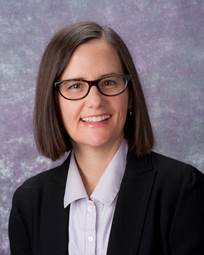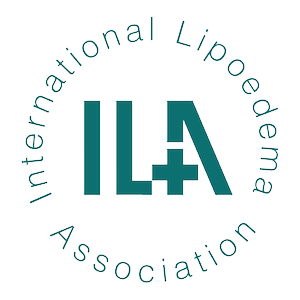Carolyn De La Cruz
MD, CLT
Breast Reconstructive Surgery and Autologous Lymph Node Transfer: Patient Options and Treatment Algorithms
Friday, May 3, 2:50pm – 3:40pm
As part of their treatment, breast cancer patients often will have undergone mastectomy and present with a dual problem: a mastectomy defect and upper-extremity lymphedema. Simultaneous total anatomical reconstruction of breast and lymph nodes can be an attractive option for such patients. This presentation will describe treatment algorithms for such patients and present key medical decision-making tips in determining patient options. In addition, anatomy and surgical techniques will be presented with case examples. Attendees will gain an increased understanding of such surgical therapies to care for patients, both pre and post-operatively.
- Describe specific treatment algorithms and medical decision-making used to select appropriate surgical candidates.
- Discuss the advantages and disadvantages of available techniques for breast and lymph node reconstruction in post-mastectomy patients, including donor-site options and associated outcomes.
Cheng MH, Huang JJ, Wu CW, et al.: The mechanism of vascularized lymph node transfer for lymphedema: Natural lymphaticovenous drainage. Plast Reconstr Surg 2014; 133:192e–198e.
Allen, R. J. and Cheng, M. (2016), Lymphedema surgery: Patient selection and an overview of surgical techniques. J. Surg. Oncol., 113: 923-931.
Nguyen, A.T., Chang, E.I., Suami, H. et al.: An Algorithmic Approach to Simultaneous Vascularized Lymph Node Transfer with Microvascular Breast Reconstruction. Ann Surg Oncol (2015) 22: 2919.
Saaristo AM, Niemi TS, Viitanen TP, Tervala TV, Hartiala P, Suominen EA. Microvascular breast reconstruction and lymph node transfer for postmastectomy lymphedema patients. Ann Surg. 2012;255:468–73.
Dayan, J.H., Dayan, E. and Smith, M.L., 2015. Reverse lymphatic mapping: a new technique for maximizing safety in vascularized lymph node transfer. Plast Reconstr Surg, 135(1), pp.277-285.
Lee M, McClure E, Reinertsen E, Granzow JW. Lymphedema of the upper extremity following supraclavicular lymph node harvest. Plastic and reconstructive surgery. 2015 Jun 1;135(6):1079e-82e.
Chen R, Mu L, Zhang H, Xin M, Luan J, Mu D, Liu C, Ji K, Hu J, Sun J, Xuan L. Simultaneous breast reconstruction and treatment of breast cancer–related upper arm lymphedema with lymphatic lower abdominal flap. Annals of plastic surgery. 2014 Sep 1;73:S12-7.
Masià J, Pons G, Rodríguez-Bauzà E. Barcelona Lymphedema Algorithm for Surgical Treatment in Breast Cancer–Related Lymphedema. Journal of reconstructive microsurgery. 2016 Jun;32(05):329-35.
Masia J, Pons G, Nardulli ML. Combined surgical treatment in breast cancer-related lymphedema. Journal of reconstructive microsurgery. 2016 Jan;32(01):016-27.
Improving Interdisciplinary Communication
Saturday, May 4, 2:15pm – 2:45pm
Comprehensive Interdisciplinary lymphedema care can be challenging for the healthcare providers. Busy overloaded schedules, phone triage systems and disconnected patient charting systems threaten interdisciplinary communication. This lecture will discuss issues pertaining to the lymphedema patient. As a CLT and surgeon, Dr. De La Cruz has a unique perspective to help bridge the gap between therapists and surgeons. This lecture will discuss common obstructions to seamless care among providers and will present solutions for improved working dynamics.
- Identify barriers and miscommunications that exist and effective ways to improve the process of understanding.
- Discuss specifics steps that can be used to facilitate the communication process between providers.
- Recognize the benefits of improved interdisciplinary care.
Papadopoulou, M.-C., Tsiouri, I., Salta-Stankova, R., Drakou, A., Rousas, N., Roussaki-Schulze, A.-V., & Giannoukas, A. D. (2012). Multidisciplinary Lymphedema Treatment Program. The International Journal of Lower Extremity Wounds, 11(1), 20–27.
Boyages, J., Kastanias, K., Koelmeyer, L.A. et al. Liposuction for Advanced Lymphedema: A Multidisciplinary Approach for Complete Reduction of Arm and Leg Swelling. Ann Surg Oncol (2015) 22(Suppl 3): 1263.
Leland K. Ackerson & K. Viswanath (2009) The Social Context of Interpersonal Communication and Health, Journal of Health Communication, 14:sup1, 5-17
Arora, N. K. (2008). Social support in health communication. In W. Donsbach (Ed.), The international encyclopedia of communication (pp. 4725–4727). Malden, MA: Blackwell.
Campisi, C . Lymphoedema: modern diagnostic and therapeutic aspects. Int Angiol. 1999;18:14-24.
Wanchai, A., Beck, M., Stewart, B. R., & Armer, J. M. (2013, February). Management of lymphedema for cancer patients with complex needs. In Seminars in oncology nursing (Vol. 29, No. 1, pp. 61-65). WB Saunders.
Lee B, Andrade M, Bergan J, Boccardo F, Campisi C, Damstra R, Flour M, Gloviczki P, Laredo J, Piller N, Michelini S. Diagnosis and treatment of primary lymphedema. Consensus document of the International Union of Phlebology (IUP)-2009. Int Angiol. 2010 Oct 1;29(5):454-70.
Cormier JN, Rourke L, Crosby M, Chang D, Armer J. The surgical treatment of lymphedema: a systematic review of the contemporary literature (2004–2010). Annals of surgical oncology. 2012 Feb 1;19(2):642-51.

Dr. Carolyn De La Cruz specializes in breast reconstruction surgery at Magee-Womens Hospital of the University of Pittsburgh Medical Center (UPMC). Under her direction, the microsurgical program has thrived for over a decade.
Dr. De La Cruz completed her microsurgery fellowship at MD Anderson after 10 years of extensive post-graduate training in research, general surgery, and plastic surgery at Robert Wood Johnson Medical School and the University of Miami.
As a member of the faculty at the University of Pittsburgh, Dr. De La Cruz trains plastic surgery residents and is active in basic science and clinical research. She has published numerous papers and won teaching awards for her dedication.
Dr. DeLa Cruz is devoted to the care of the breast reconstruction patient. She performs all types of breast reconstruction including free flaps, implant-based reconstruction, and fat grafting for women who have had mastectomies. Dr. De La Cruz also treats breast cancer-related lymphedema. She has studied across the country and abroad to learn new techniques to improve the quality of life for these patients. She performs debulking procedures, lymphatic venous bypasses, and lymph node transfers.
As a passionate advocate for breast cancer reconstruction, Dr. De La Cruz is active in the community, promoting awareness. Each year, she organizes a BRA day event, bringing together the community.
 Carolyn De La Cruz
Carolyn De La Cruz
 Dr. Carolyn De La Cruz specializes in breast reconstruction surgery at Magee-Womens Hospital of the University of Pittsburgh Medical Center (UPMC). Under her direction, the microsurgical program has thrived for over a decade.
Dr. Carolyn De La Cruz specializes in breast reconstruction surgery at Magee-Womens Hospital of the University of Pittsburgh Medical Center (UPMC). Under her direction, the microsurgical program has thrived for over a decade.




